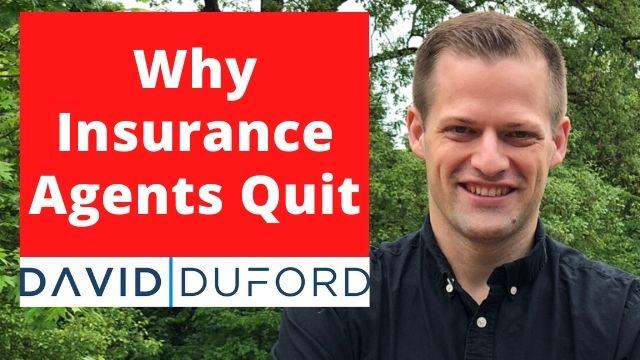Do you want to learn more about starting a career selling insurance with John Hancock?
If you are trying to decide if working with John Hancock as an insurance agent or financial advisor is a good idea, you’ve found the right article.
Let’s jump right in!
Quick Navigation Article Links
About John Hancock
John Hancock, a company named in honor of the American revolution leader, was founded in 1862 and has been providing financial service and insurance products including life insurance ever since.
In 2004, John Hancock was acquired by the Canadian life insurance company Manulife Financial, but it continues to operate under its own name.
The company is headquartered in Boston and has over 6,600 employees across all of its locations.
Products Sold
John Hancock offers term life insurance, permanent life insurance, and final expense life insurance. The company doesn’t sell whole life insurance policies.
Customers can choose between three permanent life options:
-
- universal life insurance
-
- indexed universal life insurance
-
- variable universal life insurance.
John Hancock life insurance policies are known for being very affordable.
In addition, all of John Hancock’s term and permanent life insurance policies allow participation in the company’s Vitality program.
The program gives online access to fitness and nutrition information and rewards customers’ healthy activities with various discounts.
How selling with John Hancock works
John Hancock offers its agents good career advancement opportunities. Agents are encouraged to take part in paid training and attend conferences to learn more about different types of insurance and be able to excel in their job in sales.
Through the company’s website, agents have exclusive access to detailed product information as well as a number of marketing resources and sales tools.
Furthermore, the company is often praised by its employees for its highly collaborative environment. John Hancock is committed to diversity and is known as a progressive and inclusive workplace.
John Hancock leads
The company doesn’t explicitly say how its agents find prospects.
However, if you are a new agent working for John Hancock, you will most likely have to start by cold calling for prospects or work with friends and family for referrals and sales opportunities.
It’s up to every individual agent to increase their pay portfolio. If sales are high, management will usually provide leads as compensation for their work.
John Hancock commissions
Like most insurance companies, John Hancock doesn’t publish its commissions for agents. However, the established captive agents at John Hancock are paid on a commission basis.
The company’s website states that there are a number of competitive benefits and compensation for agents.
Is John Hancock a scam, MLM, or pyramid scheme?
John Hancock insurance company is not a scam. On the contrary, it is well-established, with more than 150 years of a strong presence in the industry.
John Hancock holds excellent financial ratings from all top rating providers, such as AA- from Standard and Poor’s and Fitch, and a superior A+ rating from both AM Best and BBB.
John Hancock is not a multi-level marketing (MLM) business opportunity or pyramid scheme.
It doesn’t consist of multiple layers of agents, mentors, and trainers. It is, therefore, not suitable for insurance agents who are primarily looking to recruit.
My Thoughts
Now that you know a little more about how John Hancock’s sales career works, let me describe a few things worth thinking about from the perspective of an experienced insurance producer since 2011.
The Problem with Working with One Company
One of the opportunities that you have as an insurance agent is picking whether or not you want to represent one company or multiple companies.
Chances are you’ve heard the difference as being referred to as either a captive agent or an independent agent.
Essentially, a captive agent has limited options and with limited options comes limited opportunity to secure the best plan in terms of price, value, and quality for your client.
For instance, whether you work for John Hancock or any other insurance agency, their product line-up is not always going to be the best choice for every client.
Pushing one product means that captive agents may lose clients both before closing a deal and after when a more competitive offer comes along.
Independent agent benefits
That’s why I believe the best long-term option for most agents is to represent themselves as an independent broker.
Independent Brokers have access to a multitude of products and can hand-select the best policies for their prospects. This means their clients get better quality coverage while the agent is able to convert more presentations into sales.
Before you join any insurance agency, always consider whether being a broker or a captive agent is a better setup for you.
Short-Term Considerations Non-Competes and Vesting
Other points to consider include how non-competes work, whether or not you’re vested, and your book of business.
Most likely, John Hancock will require you to sign off on a non-compete agreement for a number of years. Most non-compete agreements stipulate that you cannot contact current clients or current agents in order to do business with them.
This is a reasonable expectation and the case for most companies.
The other factor to consider is if you decide to leave, do you continue to get paid your renewal stream of income from your policies? There are many organizations that don’t offer this even though, in my opinion, it should be standard practice.
Regardless of whether you move onto another company, you’re the one responsible for acquiring and closing those deals, so any renewal income should be yours to keep.
Unfortunately, however, some organizations believe that this income is theirs and will leave you with nothing if you decide to leave.
Summary
I hope you enjoyed this article and now understand a little more about how an insurance sales career with John Hancock works.
I train new and experienced agents to become top producing agents in final expense, Medicare Advantage, and annuity sales.
If you’d like more information about how my organization works, click the link here.
Make sure to also check out my agent success stories as well as my best selling insurance sales books.


January 03, 2023

January 03, 2023

January 03, 2023
